Planning the end: Barbara Filion ends terminal cancer battle in Vermont
|
Published: 04-05-2024 5:20 PM
Modified: 04-07-2024 1:40 PM |
The air whispered with a crisp chill, while the skies donned a cloak of somber gray, painting a typical Vermont scene caught in the days between the fading grasp of winter and spring’s hesitant arrival.
For Barbara Filion, this was the day she had anticipated for months, a day to let go of the pain and suffering caused by her metastatic bone cancer, a battle she had endured for the past 14 years.
After driving west for two and a half hours from Portsmouth, through Concord and Keene, she arrived in Brattleboro, Vermont, accompanied by her children, Marsha and Kai, their hearts heavy yet hopeful for the peace they sought.
As she stepped out of the car at 10 a.m. on a Thursday morning, Suzanne Baxtresser greeted Filion outside the house where she would spend her final moments.
“How are you feeling? What can I do for you?” Baxtresser, a retired hospice nurse asked Filion.
“I’d like one last smoke,” Filion replied almost instantly, catching Baxtresser off guard.
The Filion family connected with Baxtresser, a resident of Brattleboro, Vermont, through Patient Patient Choices Vermont’s Wayfinder Network, which is a group of retired hospice nurses, death doulas and social workers offering support and resources to families and patients navigating medical aid in dying. For non-residents like Filion, who live in a state where medical aid to die is illegal, they also assist with logistics and lodging arrangements, ensuring a smooth process during a challenging time.
Filion slowly made her way to the front porch of the house, the chilly air brushing against her face. By her side stood Baxtresser’s partner, a retired hospice nurse who was also with the family through the hours-long process.
Article continues after...
Yesterday's Most Read Articles
 Hometown Heroes: Couple’s sunflower fields in Concord reconnects the community to farming
Hometown Heroes: Couple’s sunflower fields in Concord reconnects the community to farming
 Boscawen resident takes issue with proposed town flag designs
Boscawen resident takes issue with proposed town flag designs
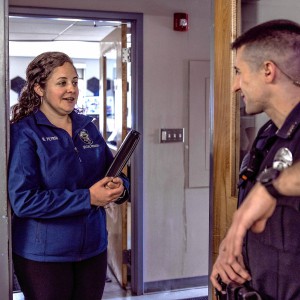 Skepticism turns to enthusiasm: Concord Police welcome new social worker
Skepticism turns to enthusiasm: Concord Police welcome new social worker
 With new plan for multi-language learners, Concord School District shifts support for New American students
With new plan for multi-language learners, Concord School District shifts support for New American students
 With Concord down to one movie theater, is there a future to cinema-going?
With Concord down to one movie theater, is there a future to cinema-going?
 Opinion: The Concord School Board can restore trust with residents
Opinion: The Concord School Board can restore trust with residents
Pulling a pack of Marlboro Lights cigarettes from the pocket of her black jacket, Filion flicked her lighter and lit the tip of the cigarette. As she settled into a chair on the porch, she took slow puffs, watching the wisps of smoke curl around her and savoring the moment as she gazed out over the Connecticut River flowing steadily alongside the house.
Inside, Baxtresser — having helped many patients end their pain through medical aid in dying — couldn’t shake the feeling of something truly special about Filion.
“Some people when they get to the end of their life, their focus is so narrow on their body and the struggle they’re in. But Barbara was still like, in life,” said Baxtresser.
Aside from getting the prescribed medications to end life, attention is required to make practical arrangements such as contacting a funeral home, organizing personal affairs and ensuring the presence of a hospice team for that day.
Amidst these weighty decisions, there are also smaller details to consider, like what would one wear to die? Filion couldn’t help but mull over this detail.
She chose to wear a blue alpaca sweater and her usual walking pants.
After one final drag from the cigarette, Filion climbed into the bed her children had arranged for her, complete with her favorite blankets, pillows and a stuffed animal.
“She was dressed like she was ready to go out for a walk on the beach,” Baxtresser said.
In May 2023, Vermont became the first state in the country to allow medical aid in dying for nonresidents and in June 2023, Oregon opened its borders to terminally ill patients who wished to end life on their own terms.
As the legislative session in New Hampshire progresses, House Bill 1283 which would allow medical aid in dying has successfully passed through the full House of Representatives and survived a motion to reconsider. If it becomes law, New Hampshire residents with a terminal illness and a prognosis of less than six months will have the option to end their lives in their own state.
Once Filion settled into bed, Marsha stood by, offering her mother a glass of water to help her swallow three anti-nausea pills. These pills are taken around 35 minutes before ingesting the more powerful drugs that offer pain relief and initiate sleep until breathing ceases and the heart eventually stops.
The waiting period is the golden moment for families to say their final farewells. For the Filions, the journey across the state felt unnecessary, but it offered one last opportunity to bond.
“The long drive was actually a really nice blessing to have this chance to slow down and sort of feel like you had all the time in the world to talk about the things that you needed to say,” Marsha said this week, as she and her brother, Kai were sorting through and clearing out their mother’s Portsmouth home.
It was somber and emotional sorting through their mother’s cherished possessions – weathered baskets, tiny trinkets from distant travels – deciding what to hold close and what to let go.
In the little time they had with their mother, Kai and Marsha sat on either side of the bed taking turns reading aloud the heartfelt letters Filion had received from her loved ones and friends.
Before leaving for Vermont, Filion had sent out gifts like canvas paintings, baby clothes and cards – as parting gifts to those dear to her heart to let them know she was thinking about them.
“I think that’s what she needed to hear,” said Marsha, her voice shaking as she recollected the emotions from that day. “I was so grateful that we had the time to make sure to tell her that she was loved by friends and family, she made a difference and she will be cherished and missed.”
Leaving the family alone in the most intimate moment, Baxtresser carefully prepared the cocktail of drugs, a mixture usually slightly more than a quarter of a cup of liquid that would bring an end to Filion’s life. To mask the bitter taste, Baxtresser mixed it with apple juice, which took on a chalky white hue.
Despite the constant pain gnawing at her stomach and the exhaustion consuming her body because of cancer’s merciless advance, Filion never failed to embrace life’s simple pleasure until her last breath, finding joy in every moment, whether it was discovering new chocolate desserts or enjoying fresh red currants from the local grocery store that she used to enjoy as a young woman in Germany.
As the moment arrived for her mother to take the medication, Marsha couldn’t help but wonder if she might hesitate, perhaps even reconsider. About one in three people who obtain medications under aid-in-dying laws choose not to take them.
Filion was resolute in her decision. She was prepared from the moment she stepped into the car that morning after bidding farewell to her friends.
“She was ready. She knew what was coming,” Marsha recounted as she explained her mother’s deep-seated fear of fracturing a bone and being confined to a bed. “She solidly believed that this was the best way to go for her, as opposed to what she would have faced through the progression of her bone cancer.”
When the time came, Baxtresser brought the cocktail of drugs that would usher Filion into her final moments, along with a bowl of lemon sorbet to mask the bitter taste and soothe her tongue.
Filion, who loves ice cream, couldn’t indulge in a bowl of her favorite chocolate ice cream swirled with white chocolate on her last day since the drugs don’t react well with dairy. She had to settle for the lemon sorbet.
With each sip of the potent mixture, she followed with a spoonful of the refreshing sorbet, the tartness of the lemon providing a welcome contrast to the bitter medicinal taste.
“I want more sorbet,” Filion declared, relishing the last moments of her life.
In no time at all, after taking the medication, Filion slipped into a slumber at 11 a.m., cocooned by her children around the bed and surrounded by treasures she held dear, such as a stuffed hedgehog and a stone she found on one of her many walks on the beach.
“I just want everyone to be at peace with one another,” were some of her final words before drifting off, Kai said.
With each passing hour, Filion’s breaths grew slower, each inhalation shallower than the last. There was no desperate gasping for air, just a quiet, serene acceptance settling upon her features, her children said.
“Her heart was so strong, it was really beating and I just thought maybe her will to live is just going to overcome the medicine,” Marsha said.
As they waited, her breaths gradually softened, each one quieter than the last. The spaces between her breaths got longer and longer, and at one point they stopped altogether and she slipped away into the silence. She died on March 28 at the age of 82.
“We feel so grateful that she selflessly spared us from having to see her decline,” Marsha said. “I couldn’t have asked for anything better, just maybe an extra couple of minutes after she took the medicine.”
Other stories
Planning the end: Barbara Filion looks to Vermont for medical aid in dying

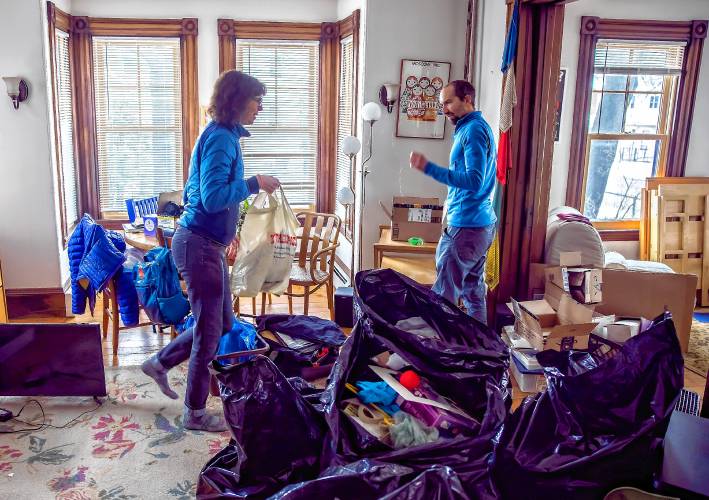
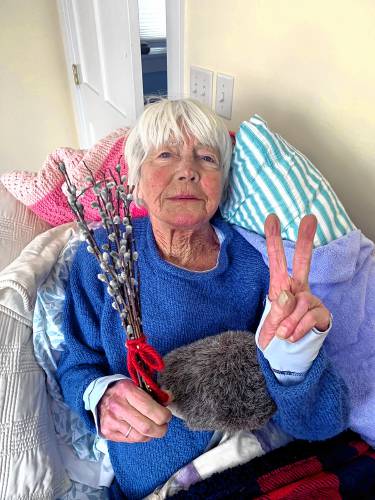
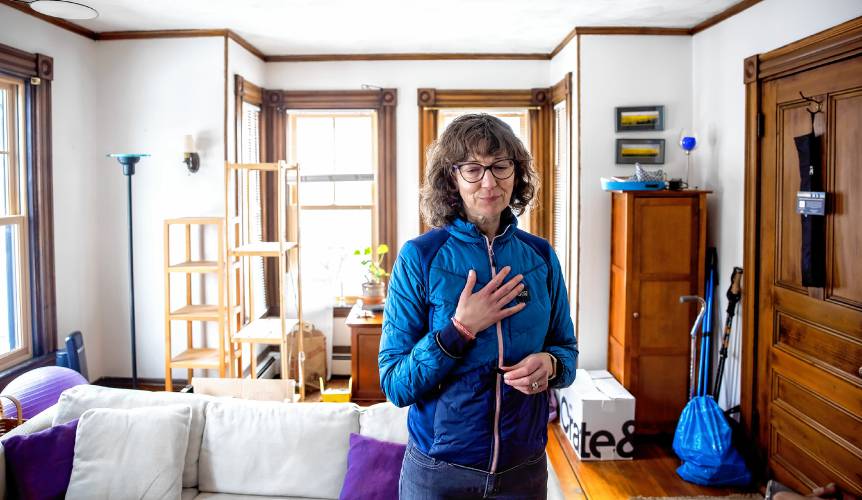
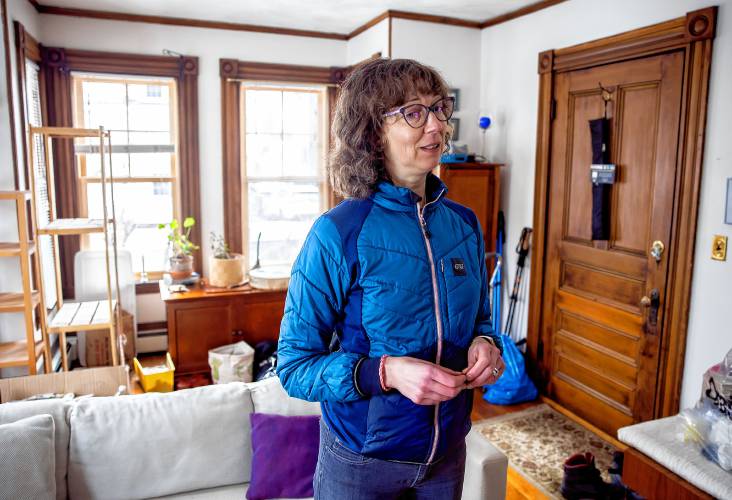
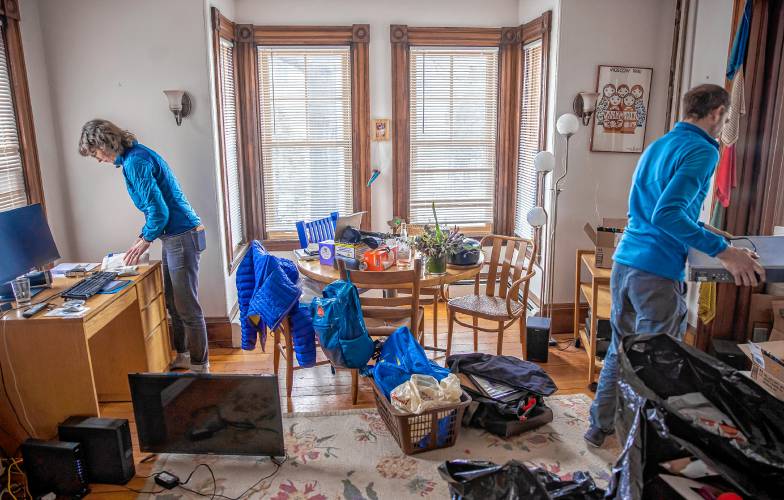
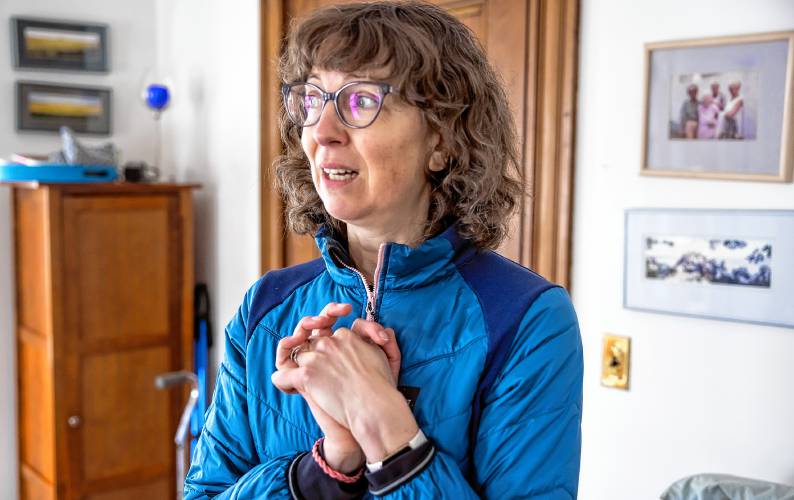
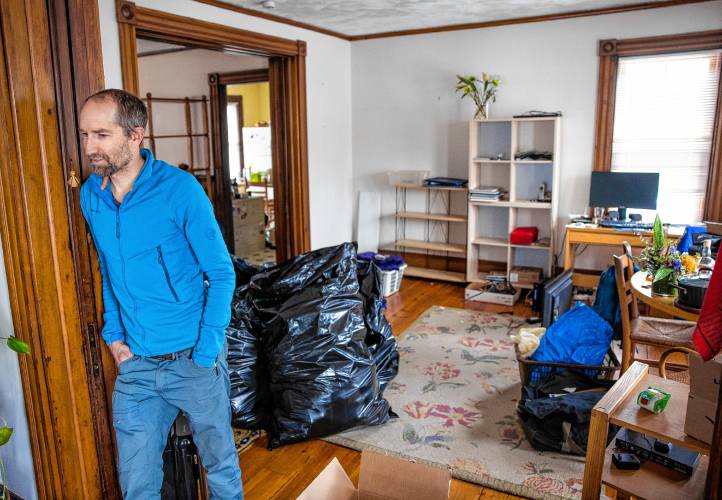
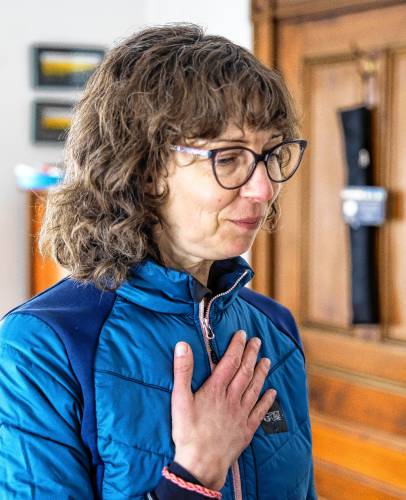
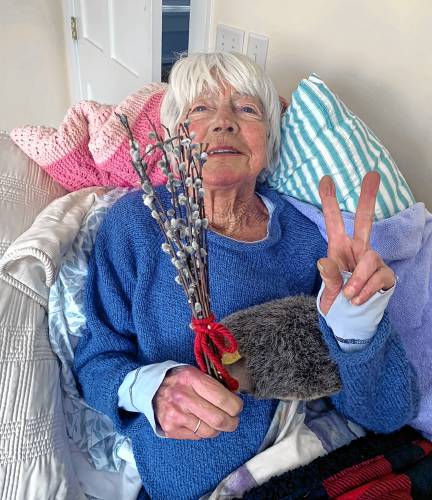
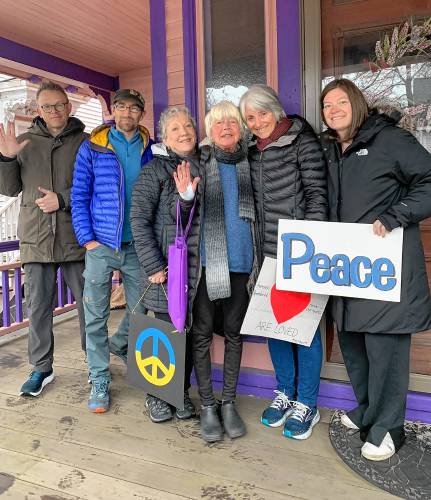

 Voice of the Pride: Merrimack Valley sophomore Nick Gelinas never misses a game
Voice of the Pride: Merrimack Valley sophomore Nick Gelinas never misses a game With less than three months left, Concord Casino hasn’t found a buyer
With less than three months left, Concord Casino hasn’t found a buyer Kearsarge Middle School drone team headed to West Virginia competition
Kearsarge Middle School drone team headed to West Virginia competition Phenix Hall, Christ the King food pantry, rail trail on Concord planning board’s agenda
Phenix Hall, Christ the King food pantry, rail trail on Concord planning board’s agenda
